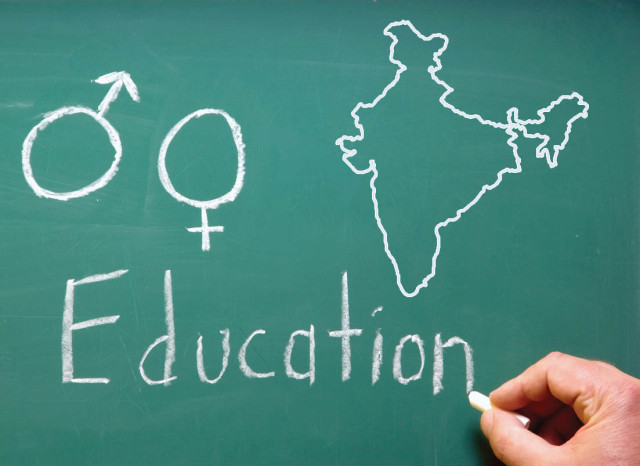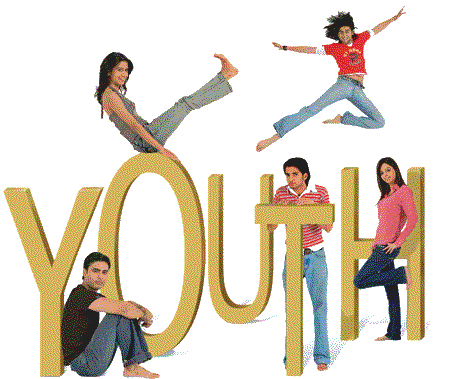Education is an interim part of the social system. In fact, it is one of the basic activities of the people in all human societies. The continued existence of societies depends upon the transmission of culture to the young. It is essential that every new generation must be given training in the ways of the group so that the same traditions will continue. Every society has its own ways and means of fulfilling this need. Education has come up to be one of the ways of fulfilling this need.
The term education is derived from the Latin word ‘educare’ that literally means to ‘bring up’ and is connected with the verb ‘educare’ which means to bring forth. The great thinker and philosopher; Plato was also of the opinion that the end of the education was to develop in the body and in the soul (of the human beings) all the beauty and all the perfection of which they are capable. The central aim of education is basically to develop man’s faculties especially, his mind, so that he may be able to enjoy the contemplation of the supreme truth, goodness and beauty in which perfect happiness essentially consists. And when we perceive it in its social terms; education is fundamentally being perceived as an attempt to transmit the cultural norms of the group to its younger members. It is also understood as a continuous effort on the part of the individuals to acquire more and more knowledge of culture, traditions, social habits, norms and social patterns.

Education is viewed as an agent of cultural transmission. Culture is a growing whole and there can be no break in the continuity of the same. The cultural elements are passed on from generation to generation. The family, school and various other associations act as the agents of cultural transmission. Education in its formal or informal pattern has been performing this role since time immemorial. Education as a social institution has a great social importance especially in the modern, complex industrialized societies. While seeing the greater significance of education in the sustenance of the society, we find that for a sustainable society and in order to maintain the continuity of the same, education is one of the significant institutions. Education provides sustainability to the society by facilitating and performing many important roles. Society like ours, Indian society deliberately needs the assistance of education in order to maintain its continuity and to reach the stage of sustainable development. By the term ‘sustainable’ we may understand that which is maintained and established. When we say a sustainable society, we understand that that very society has reached a stage where its functions and patterns are established and are fully maintained. Where the development is not fluctuating rather dynamic, it keeps on growing but not disturbing the equilibrium of the social system.
Indian society has been an ancient one with a grounded and well established civilization. Its culture, traditions, social patterns are ancient and fortified. Thus, our society cannot afford to see its very own culture and traditions to be diminished due to some wrong functions or ethos. It is important to understand the importance of social institution like the education that acts as an integrative force in the society by communicating values in order to unite the different sections of it. Following points will propel some light on the convincing functions that the education plays in a society and would convey to us that why should we locate our focus on building up a strong educational system in our own Indian society.
Firstly, education has the function of Cultural Transmission in a society. Culture refers to a set of beliefs and skills, art, literature, philosophy, religion, music, etc. that are not carried through the mechanism of heredity. They must be learned. This social heritage of culture is transmitted through this social institution (education).
Secondly, education contributes to the integration of the society. It helps the men to adapt themselves to their environment, to survive and to reproduce themselves. Education everywhere has the function of the formation of social personalities; it helps in transmitting culture through proper moulding of social personalities.
Thirdly, education aims at the reformation of Attitudes wrongly developed by the children and the youth of the society already. For various reasons the youngsters may have absorbed a host of attitudes, beliefs and disbeliefs, loyalties and prejudices, jealously and hatred for certain patterns and functions of the social system that further might disturb the functioning of the same. These are needed to be reformed. It is the function of education to see that unfounded beliefs, illogical prejudices and unreasoned loyalties are removed from the younger’s minds.
Fourthly, education has a practical end too. Human beings need to earn livelihood that alone can allow the existence of the society. Society needs individuals to exist and individuals need to earn their livelihood in order to live. Thus education has come up as an instrument of livelihood that prepares the youth for their future occupational positions. The youth plays a productive role in and for the society.
Fifthly, education helps in enhancing the individual’s status in the society that indirectly raises the life of the society, which he is being a part of. Conferring of status is one of the most important functions of education. The amount of education one has, is correlated with his class position in the society. An evaluation of one’s status in the society is partially decided by what kind of education one had received.
Sixth, education trains in the skills which are required by the Economy. The relation between the economy and education can be an exact one. In planned economy, normally, it is planned years in advance to produce a definite number of doctors, engineers, teachers, technicians, and scientists etc. to meet the social and economic needs of the society.
Seventh, education fosters Participants Democracy. Participant democracy in any large and complex society depends on literacy. Literacy allows full participation of the people in democratic processes and effective voting. Literacy is a product of education. Educational system has thus economic as well as political significance for the society.
Eighth, education imparts social values and skills to the members of the society. The family may fail to provide the members (particularly the children) the essential knowledge of the social skills, and social values of the wider society but the school or the educational institutions can help the, to learn the new skills and learn to interact with the people of different social backgrounds. Such an atmosphere is certainly supportive for the members of the society that raises the connectedness among the members as well as the different sections of the society.
The most important and momentous function that the education plays for the society and that which is much required to be played in the present scenario of the Indian Society; is that education works as an agent or instrument of Social Change and Social Development. Social change may take place; when human beings need change, when the existing social system or network of social institutions fail to meet the existing human needs and when new material suggest better ways of meeting human needs. Social changes do not take place automatically or by themselves. Rather social change takes place as a response to many types of changes that take place in the social and non-social environment. Education can initiate social changes by bringing about a change in the outlook and the attitudes of the individuals. It can bring about a change in the patterns of social relationships and thereby it may cause social change. Change is a natural process for any society but it should be noted that in what direction, that change directs the society. The change should bring forth development and encouragement in the members of the society and not agitation. The change should be the way that it remains stable but not static and here education can bring phenomenal changes in the society. Today, education aims at imparting empirical knowledge that is knowledge about science and technology and other type of specialized knowledge. Such knowledge also opens up the doors for development for the society by making it globalized and modernized.
Thus, concretely education is a process which brings about changes in the behaviour of the society and its members. It is a process which is deliberately essential and that which enables every individual to effectively participate in the activities of the society and to make positive contributions not only to the progress and development but also to the sustenance of the society.
































it’s a good and well explained notes.
thanks!!